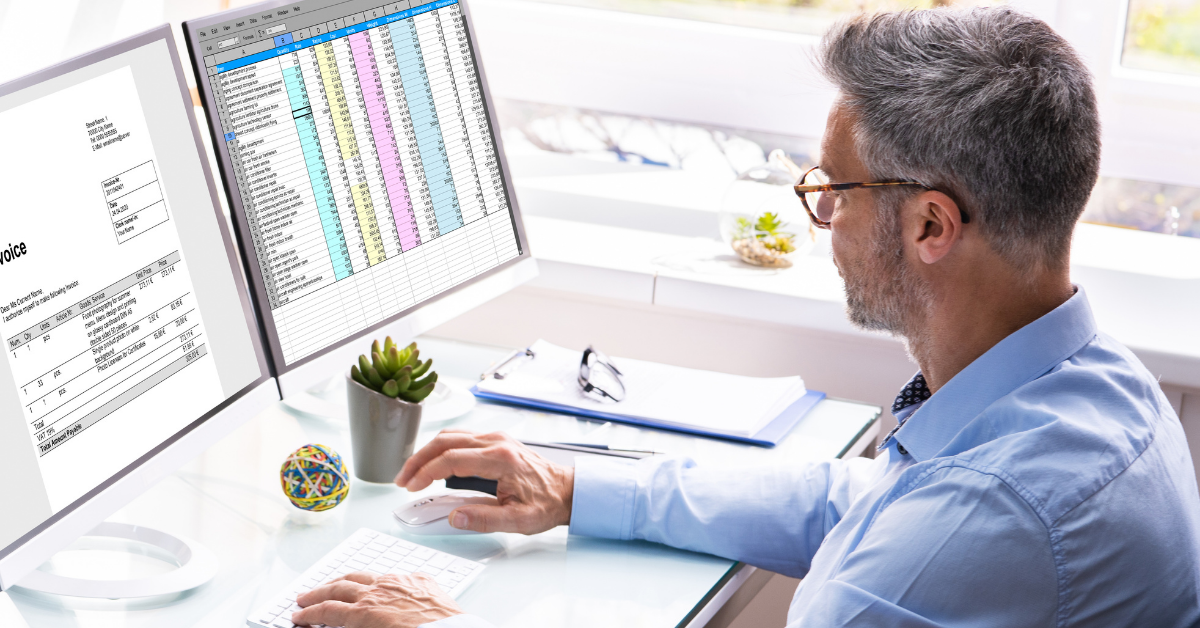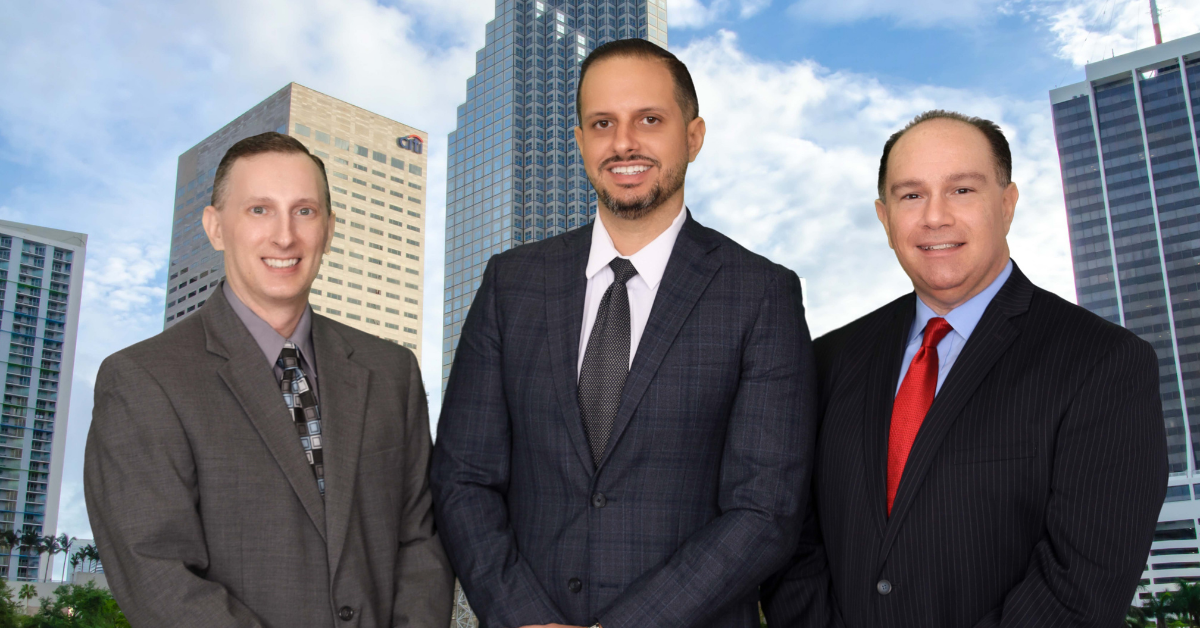Dealing with medical debt can be an incredibly stressful and challenging situation. Medical bills in the United States are notoriously expensive, often unexpected, and can quickly become overwhelming. However, there are options available for those struggling with unmanageable medical bills in Florida.
Understanding Medical Debt

Medical debt refers to bills owed for medical services provided by hospitals, doctors, labs, ambulances, and other healthcare providers. These bills can accumulate from high insurance deductibles, uncovered medical procedures, out-of-network providers, and uncovered prescription medication costs.
According to a study, in 2016 over 27% of working-age adults in the United States had problems paying medical bills. Unfortunately, this number has likely increased over the past few years.
Medical debt differs from other forms of consumer debt in that it is often unexpected. Serious illnesses and injuries can happen suddenly, resulting in large medical bills that individuals and families are unprepared to handle.
The Impact of Medical Debt in Florida

For many Florida residents, medical debt can have devastating financial and personal consequences if left unaddressed. Here are some potential impacts:
- Aggressive debt collection efforts from medical providers and collection agencies, including frequent phone calls and letters demanding payment. This constant harassment can be extremely stressful.
- Damage to credit reports and scores from unpaid medical bills being sent to collections, making it difficult to qualify for loans, mortgages, credit cards, and even rental housing.
- Potential litigation if certain medical creditors decide to take you to court for nonpayment. This could result in wage garnishments if they receive a legal judgment.
- An overall feeling of helplessness and despair as medical debt compounds, hurting not just financial health but mental/emotional health as well. Unpaid medical bills often lead to anxiety, stress and depression.
- Limited access to further medical care if you are unable to pay off past due balances. Many providers will refuse non-emergency treatment until old bills are paid.
- Potential bankruptcy if medical debt becomes severe enough that you can no longer keep up with payments, even for necessities.
Seeking Medical Bill Help in Florida

If you are struggling with medical debt in Florida, know that you have options and that help is available. Here are some strategies to consider:
Review your bills thoroughly
Medical billing errors are surprisingly common. Carefully review all charges on your latest bills to ensure accuracy. If you find any discrepancies or suspect double billing, contact the provider or hospital billing department to dispute the charges. Having errors corrected can potentially lower your balances.
Ask providers for financial assistance
Many hospitals and doctors’ offices have financial assistance programs or charity care options for low income patients. Inquire about eligibility for these programs which can reduce or even eliminate your medical debt. Nonprofit hospitals are required to have financial assistance policies.
Set up payment plans
Rather than paying medical bills in a large lump sum, ask billing offices if you can instead spread payments out over several months. Most will work with you to establish an affordable recurring monthly payment plan. This makes medical bills more manageable.
Negotiate with providers
Hospitals and doctors often settle medical debts for significantly less than the original billed amount. Be polite but persistent in requesting reductions, especially if you offer immediate partial payment. Many medical providers would rather receive a smaller settled amount than have to send the debt to collections and receive nothing.
Seek help from nonprofit organizations
Several national and local nonprofit organizations provide medical bill assistance and other aid to struggling patients. For example, the HealthWell Foundation provides financial assistance for prescription medications to eligible individuals. Patient advocates can also help you negotiate medical bills.
Leverage government programs
Federal, state and local government programs exist to help those unable to pay medical costs. Medicaid provides coverage for low income families. Specific programs like Medicaid for pregnant women in Florida also exist. Contact your state Medicaid office to inquire about available assistance programs.
Consider debt consolidation
Consolidating medical bills with other debt through a loan or credit card balance transfer can simplify payments into one monthly bill with lower interest rates. However, this option is only recommended if you can qualify and comfortably handle the monthly payment.
Explore medical bankruptcy
For those dealing with truly overwhelming medical debt, filing for bankruptcy may be an option worth exploring, especially if bills are severely impacting your ability to pay for basic living expenses and necessities. Under bankruptcy protection, many medical debts can be discharged or paid back slowly over time. Chapter 7 or Chapter 13 bankruptcy will stop collections and provide relief. An experienced bankruptcy attorney can advise whether this path is appropriate based on your unique circumstances.
Handling Medical Debt Collection Efforts

If your medical bills have gone unpaid for an extended period, they will likely end up in the hands of aggressive third-party debt collectors. The Fair Debt Collection Practices Act protects consumers against harassment and false statements by collectors.
You have specific rights when dealing with collection agencies pursuing medical debt. Here are some tips:
- Send debt validation letters requesting verification that you actually owe the amount claimed. Collections may not be able to provide adequate documentation and will be forced to stop contacting you.
- Clearly inform collectors in writing if you do not believe you owe the debt or dispute the amount owed. They must investigate the issue.
- Let collectors know not to contact you further except to provide formal notice of any lawsuit. Constant calls can legally be halted.
- Report any illegal collection harassment, threats or sharing of false information about your situation. Debt collectors can be fined for violations.
- Avoid making partial payments on time-barred medical debts, which resets the statute of limitations. Collectors may pursue old bills they could not legally sue for before.
The Impact of Medical Debt on Your Credit

Medical debt that goes unpaid and gets sent to collections can seriously damage your credit history and scores reported by credit bureaus. Defaults on medical bills hurt your credit similarly to defaults on loans, credit cards or other services.
However, the three major credit bureaus (Experian, TransUnion, Equifax) have made some policy changes regarding reporting of medical collections:
- As of 2022, paid medical collections will no longer appear at all on credit reports. Only unpaid debts will be listed.
- Starting 2023, medical collections under $500 will also not appear on credit reports.
- Unpaid medical debts will have less of an impact on credit scores than non-medical collections.
So going forward, minor medical bills are less likely to drag down your credit profile compared to before. Still, significant unpaid medical debts sent to collections can certainly still take a toll on your credit. Preventing this scenario through the various medical bill help strategies remains vital. An attorney experienced with medical debt collections and credit reporting can provide guidance in this area.
Finding Medical Debt Relief in Florida

Navigating complex medical bills, dealing with aggressive collectors, and handling the credit damage caused by unpaid medical debt is difficult enough while also trying to focus on your health. Fortunately, experienced professionals are available to support and counsel you each step of the way toward financial and mental relief from the burden of overwhelming medical costs. Whether establishing affordable payment plans, leveraging financial assistance programs, pursuing debt consolidation strategies or even filing for bankruptcy protection, solutions exist to move beyond medical debt. With persistence and the right help, medical bills in Florida do not need to dominate your finances and well-being.
Frequently Asked Questions About Medical Debt
How can I get help with my medical bills in Florida?
There are several options for getting help with medical bills in Florida:
- Contact the hospital or provider’s billing department to ask about financial assistance programs, payment plans, or bill reduction options. Nonprofit hospitals are required to provide help to low income patients.
- Look into state and federal government assistance programs like Medicaid that provide coverage for medical expenses. The Medicaid office can advise on available options.
- Consult with nonprofit organizations that offer medical bill assistance and other aid to patients in need. Groups like the HealthWell Foundation provide grants to cover prescription drug costs.
- Hire a patient advocate to negotiate with healthcare providers and insurers on your behalf to lower your overall medical expenses.
- Speak to an experienced attorney about the potential benefits of debt consolidation or bankruptcy if your medical debts are completely unmanageable.
What happens if you don’t pay medical bills in America?
If you do not pay medical bills in America, a few things may happen:
- The medical provider will send the unpaid bill to a collections agency, which will attempt to collect through frequent calls and letters. This can badly damage your credit if it remains unpaid.
- You may be sued by the medical provider if you owe them a substantial amount. If they receive a court judgment against you, they can garnish your wages or levy your bank account.
- Your credit score will be negatively impacted by the unpaid medical debt being reported to credit bureaus after being sent to collections. A poor credit score makes it harder to qualify for loans and credit cards.
- You may be denied non-emergency medical care by providers until old bills are paid. Few providers will offer additional services if previous balances remain.
- You will continue accruing interest on the unpaid balance, increasing the amount owed over time. Medical providers may also tack on late fees for overdue bills.
- The constant weight of unpaid medical debt often leads to significant stress and anxiety, impacting mental health and emotional well-being.
What is one recommendation you have for someone who is struggling to pay their medical bills?
One recommendation I would give someone struggling with medical bills is to first thoroughly review the bills for any errors. Mistakes by medical billing departments happen frequently. Identifying potential discrepancies and having any inaccurate charges removed could help lower the amounts owed. I would also advise the person to politely but firmly negotiate with the providers’ billing departments to have the balances reduced or set up manageable recurring payment plans. Many medical offices and hospitals are willing to work with patients who show good faith in attempting to pay what they can. Seeking financial assistance and payment arrangements is better than avoiding the bills entirely.
What happens if you never pay collections?
If you never pay collections accounts, a few consequences may happen:
- The collections account will stay on your credit report negatively affecting your credit score for up to 7 years. This could make it difficult to qualify for financing or loans.
- You may potentially be sued by the original creditor if the statute of limitations has not expired. If they are awarded a court judgment, your wages could be garnished or bank accounts levied.
- Persistent calls from collection agencies demanding payment will continue. They may also attempt to contact your friends, family and workplace.
- Additional late fees, interest and legal fees may be added by the creditor, increasing your balance. The debt can grow substantially larger over time.
- The collector may renew efforts to collect by re-reporting the account information to the credit bureaus, keeping it on your credit report longer.
- You will be ineligible for any payment plans or settlement offers to reduce the amount owed. Collectors will be less likely to negotiate if you are completely unresponsive.
Ideally you should try to resolve collections accounts through payment plans or settlements. Seeking professional legal advice on options like bankruptcy could also provide a path to eliminating certain debts.
Take Control of Your Medical Debt

If paying off medical bills has become a constant struggle that is weighing on your financial and mental health, it may be time to seriously explore debt relief options. The skilled attorneys at LSS Law offer compassionate yet aggressive legal representation to clients with overwhelming medical debt here in South Florida. We are highly experienced in leveraging bankruptcy protection, debt negotiation tactics, credit repair assistance, and other powerful solutions to help clients move beyond crippling medical bills and regain hope for a brighter financial future. Don’t continue letting fear, anxiety, and frustration over medical collections torment you. Call us today at 954-920-5371 or click below for a free consultation (for Chapter 7 and 13). There are always better days ahead once you take action!






